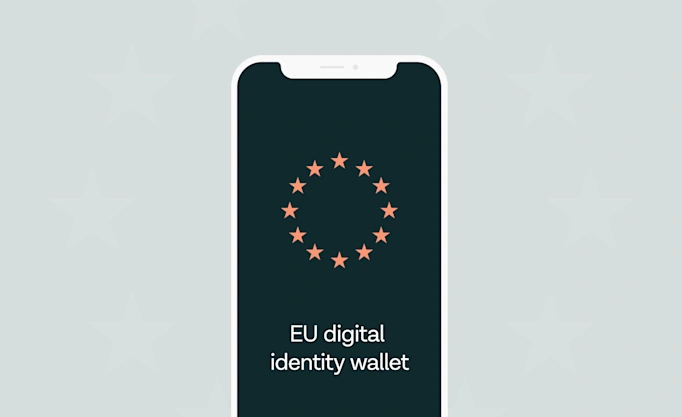Why the entrant vs incumbent story never added up

Gone are the days when banks and fintechs battled for the financial services crown. Collaboration is proving to be king, as the relationship between banks and fintechs has evolved significantly. Tink’s UK and Ireland country manager Rafa Plantier takes a look at how banks and fintechs have worked out they’re better together.
The disruptive entrant vs incumbent story hasn’t played out.
Collaboration has moved the industry past this outdated view.
Banks becoming dumb pipes that simply funnel money and data is a fake dichotomy.
Banks and fintechs realise they’re better together, helping bank partners become higher performing businesses.
A few weeks ago I found myself virtually sitting aside some of the great and good in banking and fintech, for the Innovate Finance and HM Treasury Fintech strategic review. Amongst the chat about Brexit, investor sentiment and access to banking infrastructure, we touched on the rapid transformation facing financial services institutions, and the importance of continuing to foster partnerships between banks and fintechs.
This got me thinking about how much the relationship between banks and fintechs has changed over the last 20 years. Back then, it would have been hard to find a bank willing to sit down with what we call a fintech today. But disruption has increasingly given way to collaboration, moving the industry past the now outdated view that pitted nimble new entrants directly against the big incumbents.
Not just ‘dumb pipes’
Today, banks continue to have the edge when it comes to delivering on the expected transformation of financial services, enjoying a level of consumer trust developed over decades if not centuries. The rise of fintechs turning banks into ‘dumb pipes’ that simply funnel money and data is a fake dichotomy. Yes, fintechs are growing in relevance and value, but leading banks have thriving businesses. Both things can be true at the same time. Now, the interesting thing is that they tend to be true together. Breakthrough fintechs are turning bank partners into higher performing organisations.
Banks matter because they are a fundamental social construct. They are part of our monetary system. Society entrusts them with the power to create money – in fact, they create about 80% of the money in the UK economy. So where banks are headed is of social relevance, and I believe the ‘dumb pipes’ idea is neither accurate of the present nor desirable for the future.

Rafa Plantier, Tink’s UK and Ireland country manager
More value together
The disruptive entrant versus incumbent narrative hasn’t played out. Banks and fintechs have become much less directly competitive, as partnerships are more possible and the technology to enable these partnerships is more readily accessible.
It wasn’t that long ago that for a bank and fintech to partner, direct connections had to be built to create a file exchange – not a massive job from an engineering perspective, but a project that was costly to implement, given (rightly so) the information security scrutiny, the orchestration of two organisations working together and the observability requirements to smoothly run the service.
APIs have revolutionised the possibilities for banks and fintechs to join forces, and the rise of B2B fintechs has increased the banks’ opportunities to offer their customers more innovative services, like multi banking, personal finance management, enhanced credit scoring and income verification.
One of the reasons these partnerships work so well is while banks tend to offer a broad range of services to their customers, fintechs are more narrowly focused on certain issues – and through technology – and passion – tend to be better at solving them. For example, banks will see a loan, a mortgage or a bank account as a product, while a fintech will see the onboarding process, credit decision or the categorisation of transactions as the product. So when banks and fintechs bring their expertise together, it can lead to more financial inclusion, greater customer engagement and better money management.
Collaboration on the rise
In recent research Tink carried out amongst financial executives across Europe, 22% of banks were already in a bank and fintech partnership, with a further 54% planning to be in a partnership in the next 12 months. And for those banks already in a partnership, the number of fintech partners they have has increased for many in the last year, with nearly half having five or more partners.
It’s clear that the argument is no longer about entrants and incumbents – it's about whether banks are digitally enabled or not. The interesting thing about open banking is that not to invest in it means you are only a passive agent in the open banking ecosystem, so data only goes out of you, not into you. Our research shows banks across Europe are on average investing €50 to €100 million in open banking. While a lot of this will be spent on compliance, we can expect that banks want to get some data back too. 2021 may be the year we see this skyrocket, as bank and fintech partnerships really take off.
Find out what services you could build with Tink’s open banking platform.
More in Open banking

2025-06-09
11 min read
The case for “Pay by Bank” as a global term
Thomas Gmelch argues that "Pay by Bank" should be adopted as a standard term for open banking-powered account-to-account payments to reduce confusion, build trust, and boost adoption across the industry.
Read more

2025-06-02
3 min read
Tink joins Visa A2A – what it means for Pay by Bank and VRP
Visa A2A brings an enhanced framework to Pay by Bank and variable recurring payments (VRP) in the UK, and Tink is excited to be one of the first members of this new solution.
Read more

2024-11-19
12 min read
From authentication to authorisation: Navigating the changes with eIDAS 2.0
Discover how the eIDAS 2.0 regulation is set to transform digital identity and payment processes across the EU, promising seamless authentication, enhanced security, and a future where forgotten passwords and cumbersome paperwork are a thing of the past.
Read more
Get started with Tink
Contact our team to learn more about what we can help you build – or create an account to get started right away.
